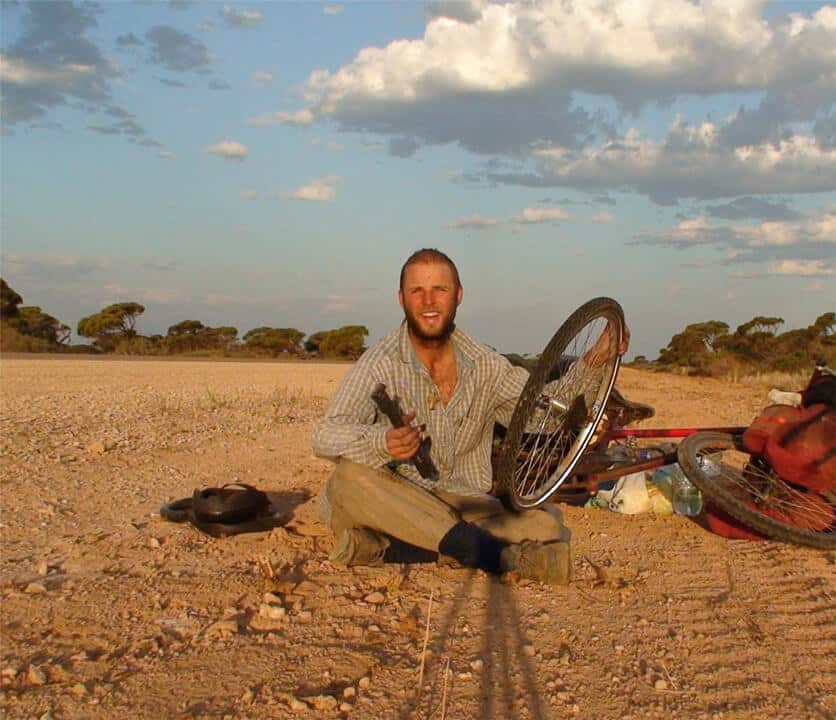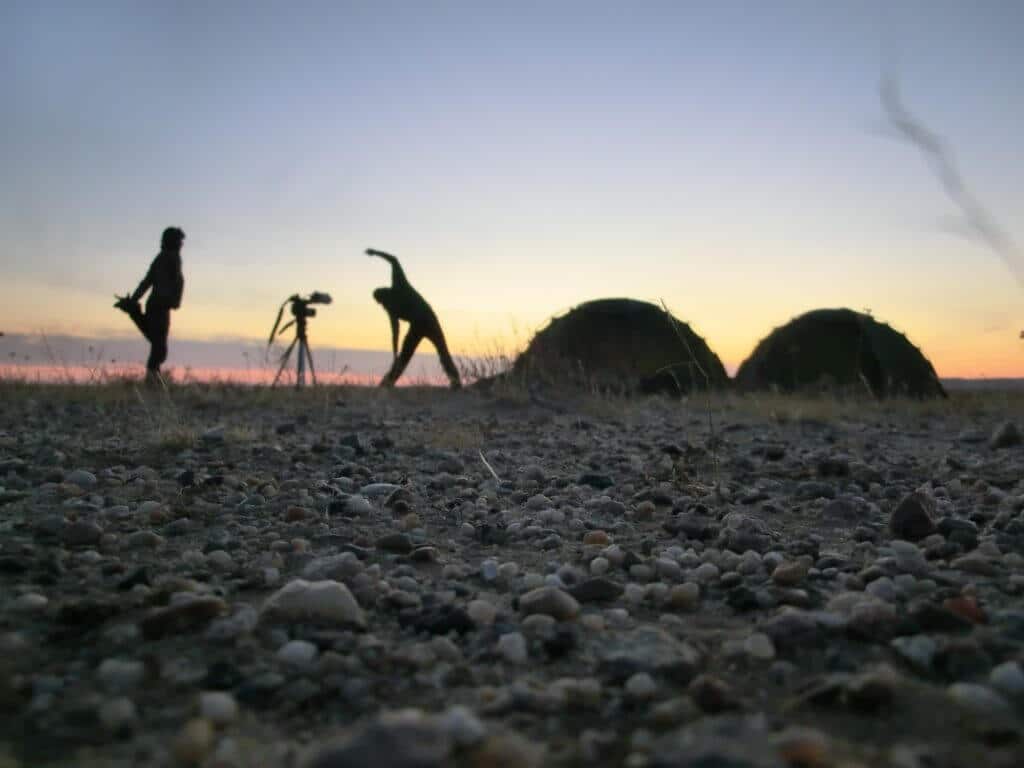It has been a strange and tough two weeks in China, Hong Kong and much of Asia, and how things are going to play out from here feels very uncertain.
The Wuhan Coronavirus is just the latest great uncertainty to beset us, with changing technology, politics, business models, trade wars all just becoming part of the new norm of our uncertain times.
Expeditions, by nature, are full of uncertainty and setback, so here are a few reflections and applications for getting through uncertain times:
1. It’s so easy to lose perspective, but don’t get sucked down a rabbit hole of worry.
On an expedition
… there are always a lot of things to worry about. While cycling across Siberia, I constantly worried about the oncoming winter, the bears, the wolves… I spent a lot of energy on these worries, though in the end it turned out I could survive the winter by preparing well, the bears had hibernated, and there were very few wolves.
I continued on through South Korea, and felt much safer, but one morning when I was not worrying at all, I got hit by a truck!
After that I tried to keep risks in better perspective. The traffic was nearly always a bigger danger than bears, robbers or weather.
I also focused on controlling the controllables
e.g. preparing for cold weather, rather than worrying about it;
e.g. pushing the bike on the sidewalk if I was on a particularly treacherous road

Applying to your life/business
It is vital to keep risks in perspective.
How might the virus affect business?
Are there other risks you are not thinking about enough? What are they?
What controllables in your company do you need to focus on controlling more, to reduce the risk, and build business?
Also, while it is obviously good to keep abreast of what is going on in times of crisis, in most jobs we do not need to check the news several times an hour.
In fact that might really distract us from doing a good job and make us feel more depressed and anxious than necessary.
I check the virus stats once every morning at this site https://www.worldometers.info/coronavirus/, and then focus on what I can control in my work.
2. What are the opportunities I can make the most of during this difficult time?
On an expedition
When cycling around Australia, I came down with malaria. I had caught it in Papua New Guinea, which I had just crossed – but I only got ill in Australia.
In just a few days I lost 10kg, and had to take almost a month off to recover.
It messed up my plans and my schedule, including some speeches I was due to give.
But the time off also turned into a valuable time, as I was able to rest, research the next difficult sections of my route (such as through Afghanistan), fix my bike, and buy a video camera (which I almost didn’t do – but I am glad I did because after the expedition National Geographic bought the footage off me and made a TV series!)
Surprisingly, the setback turned out to be a value-adding time for me and the expedition.

Applying to your life/business
If certain business activities are currently limited (e.g. face-to-face client meetings), then how can I use this time in the most valuable way?
Can I do more to improve in these areas:
- Personal/skill development?
- Building relationships with clients?
- Organising systems better?
- What else?
3. If this disruption is causing me significant problems – how can I remember to prepare better for the next one – to avoid those same problems again.
On an expedition
Before I set off to walk 6 months from Mongolia to Hong Kong, my physio strongly advised me to spend some time stretching every day, to avoid injury. I took his advice for the first month, then got lazy and stopped stretching. Shortly after this, I got a major foot injury, and almost had to quit the expedition (thankfully we still managed to finish it, but it was a very painful walk!).
On expeditions since then, I have learned my lesson, and do ample stretching every day. This, thankfully, has kept me injury-free.

Applying to your life/business
What things are you wishing you had done to prepare for this (saving up a financial reserve, having multiple streams of income, etc).
Make a clear note to action them as soon as possible, so that you will be ready when the next disruption comes.
4. If I run my own business and profits/resources are going to be significantly squeezed, how can I reduce costs in the least damaging way?
On an expedition
When I arrived in Japan on a ferry from Russia, with plans to cycle down its length with my friend Al, we were initially worried because everyone had told us “Japan is a very expensive country”.
We did not have much money. But then Al had a great idea:
“No,” he said, “Japan is not a very expensive country, as long as you never buy anything!”
So we slept in our tents, and ate ramen noodles for three months. We spent just a few dollars a day and still had a great time!

Applying to your life/business
For anyone working in the industry I work in – the speaking industry – there is going to be less work for a couple of months, as many events in Asia are currently being rescheduled because of the virus fears.
It is good practice, I believe, to sometimes refrain from the luxuries in our lives.
When I was a teacher, I used to sometimes have what I called a “cheap week” when I lived on as little money as possible. It was amazing how little I needed, and I did not really suffer actually. Life is full of great things that do not need money (going for a walk with a friend, reading a great book that’s been waiting on your shelf, writing a heartfelt letter to a loved one).
Someone I greatly respect was made unexpectedly redundant at the start of a big recession. His kids were still in private school, so he had a lot of outgoings. So he always said to himself when he was going to buy something: “Do I need it today?” If not, he would resist buying it. It took a long time for his income to pick up again, but he still got his kids through school.
If finances are about to get squeezed, how can you reduce expenditure as soon as possible, without doing harm?
Sum up:
What are your real risks right now, not just the media-fuelled fears?
How can you use this time as productively and strategically as possible, so when things pick up, you will have gained from this time?
What things are you wishing you had done to prepare for this, which you can remember to do prior to future setbacks?
If things are looking tight financially, how can you immediately reduce expenditures without doing harm?
Check out my website for more inspiration to become more positive, courageous and resilient.








